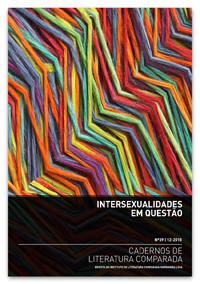(Auto)biographism and hetero-militar dictatorship in "Fluxo-floema"
DOI:
https://doi.org/10.21747/21832242/litcomp39a14Keywords:
Hilda Hilst, biographical space, homoeroticism, Brazilian literatureAbstract
Based on Roland Barthes’ and Leonor Arfuch’s theoretical proposals, we will consider “biographical space” as one of the ways which LGBTQI+ people find locus and vehicle for their expression. The stylization of (auto)biographical writing in authorship or thematic homoerotic literature, produced during Brazilian “heterosexual-military” dictatorship (1964-1988), guided our analysis of “Fluxo” and “O Unicórnio”, stories that compose the book Fluxo-floema (1970), by the Brazilian writer Hilda Hilst. Our conceptual bases are increased with the historical research made by Renan Honório Quinalha and data contained in the National Truth Commission Report, that allowed us to relate political oppression and repression to subjectivities. We conclude that Hilda Hilst has ironically appropriated the dominant discourse itself in order to explore bodies, living and scriptural, of homoerotically bent subjects, to denounce the violence generated by the dictatorial government to which her texts here explored seem to refer.


